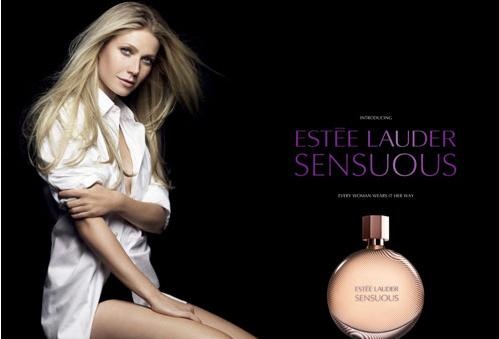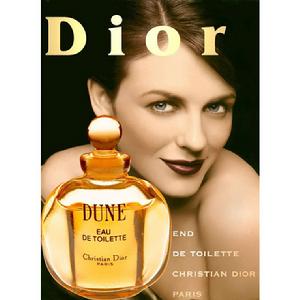How to approach Perfume market in China
To understand the current perfume market in China, one must first understand China’s history. Perfume was very present in China’s culture during its imperial years, all the way up to the 1920s and 30s. It was associated with royalty and wealth, and many perfumes were produced locally, especially in Shanghai, capital of fashion. However, the arrival of communism led to a de-feminization of women. Beautiful qipaos were replaced by baggy, colorless worker clothes, jewelry was seen as a capitalist symbol, and perfume completely disappeared from use. Thus, young women today have not grown up with perfume – their mothers did not wear it, and neither did they. As a result, market research has shown that a majority of female university students do not even own a bottle of perfume. Then, the perfume market in China almost starts from scratch.
Perfume is the lowest segment of luxury in China
Furthermore, the price of brand perfumes when compared to average income worsens this situation: perfume is viewed as entry-level luxury. When deciding to spend this amount of money, consumers prefer to opt for a more visible product (bags, shoes, wallets, jewelry). As a result, first-time buyers of perfume(outside of gifting) are usually much older than in the West, and start to purchase in their mid-to-late 20s, when they obtain a comfortable income and can afford to spend it on less visible products. Even then however, they will rarely have more than 1-2 bottles of perfume at home, and opt for choices that can be worn in multiple settings.
It is no wonder then that perfume market in China is growing slower than other segments for luxury brands. While the growth of the luxury market over the past few years has been around 20% (2013 excluded), perfume market has grown between 8-12% YoY.
Perfume market in China shows potential for further growth
However, perfume market shows the great potential. Once women start to get interested in perfume, they show extremely high enthusiasm and interest, testing dozens of perfumes in-shop, reading reviews online and learning about the different types of perfume and their composition (bases, notes..). Women especially show interest for perfumes with a history and a story: who designed it? Why? What was the inspiration behind it?
This potential is highest for branded perfumes. These are seen as the safest choices, ones that have the highest chance of being recognized by their peers and are trustworthy when it comes to quality. The presence of a brand they know and trust on the bottle reassures them of their choice. Additionally, brands with an iconic perfume e.g. Chanel no. 5, have seen strong success as this helps orient first-time buyers towards a well-known and safe choice. Therefore, the development of perfume market in China involves the presence of these highly renowned brands.
Perfume consumption in China is also drive by gifting
Furthermore, the brand helps growth in one of the largest segments of the perfume market: gifting. Although personal use is on the rise, especially with consumers in their 30s, gifting is still a strong motivation. 60-70% of perfume buyers say they have purchased perfume for gifting. Branded perfume is a safe gift, a very important concept in China’s culture where gifting and giving face to the other party through the gift is essential while building relationships. The brand reassures as to the value of the gift, while the choice of perfume is perceived as original and personal. Additionally, perfume market in China is not being targeted in the anti-corruption campaign, and sales have not been strongly affected.
Domestic competition is increasing
 Challenges exist however. Sales staff are often not knowledgeable enough about the products (as they themselves cannot afford to buy them), and unable to tell an engaging story, often only using banalities such as naming the brand and the product name. There exists a black market for perfume online, with shops on Taobao offering cheap perfume that they brand as factory-bought or illegally imported. Consumers are both wary of this, as they fear harmful chemicals, but interested as it makes the perfume market in China more accessible, potentially creating PR crises for brands. Sephora is increasingly used to learn about perfumes and a preferred shopping destination, leading brands to lose some control on their promotional and education efforts. Finally, although the perfume market in China is still dominated by foreign brands, domestic perfumes are increasingly trying to break into the premium market e.g. Shanghai Vive by Jiahwa, and are more effective in reaching out to and convincing consumers due to their deeper understanding of communication (wording, stories, events) and channels, especially online.
Challenges exist however. Sales staff are often not knowledgeable enough about the products (as they themselves cannot afford to buy them), and unable to tell an engaging story, often only using banalities such as naming the brand and the product name. There exists a black market for perfume online, with shops on Taobao offering cheap perfume that they brand as factory-bought or illegally imported. Consumers are both wary of this, as they fear harmful chemicals, but interested as it makes the perfume market in China more accessible, potentially creating PR crises for brands. Sephora is increasingly used to learn about perfumes and a preferred shopping destination, leading brands to lose some control on their promotional and education efforts. Finally, although the perfume market in China is still dominated by foreign brands, domestic perfumes are increasingly trying to break into the premium market e.g. Shanghai Vive by Jiahwa, and are more effective in reaching out to and convincing consumers due to their deeper understanding of communication (wording, stories, events) and channels, especially online.
Consulting and Recommendations on Perfume market in China
Product testing – understanding which situations the perfume is most adapted to and recommendations on wording, descriptions, story and marketing campaigns that fit the product.
Focus groups – gaining a better understanding of how current core market chooses perfume and main motivation drivers in purchase, with a focus on retail experience
1-on-1 qualitative interviews – focus on younger consumers to better understand what drives them towards perfume and how to convert them from an earlier age
Competitor and market analysis – understanding of best practices, potential threats (esp. domestic) and best responses.
See also: Marketing to China / NY Times




